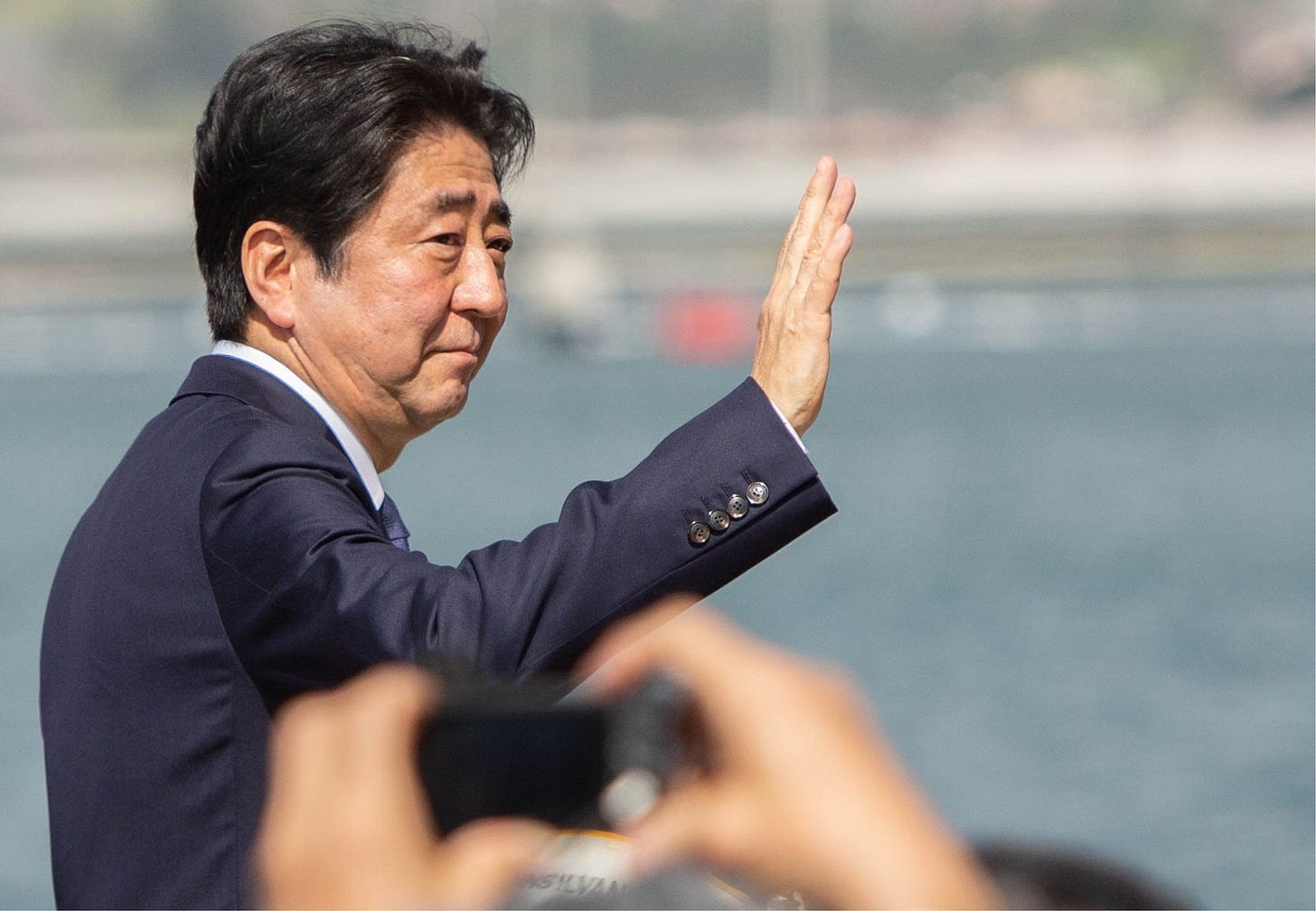Dispatch from Tokyo
Japan has lost its most passionate advocate of constitutional reform. Brad Glosserman reports from Tokyo following the murder of Prime Minister Shinzō Abe.

I was having lunch at the International House of Japan in Tokyo, a long-established waterhole for visiting academics and scholars, when I got news of the shooting of former Prime Minister Shinzō Abe. My phone buzzed—as did that of my lunch companion—with stunned text messages from my wife and journalists. The room was full. There was only one other table of gaijin (foreigners). Yet as I looked around, there was no discernible buzz, no change in the pace of the staff or mood of the room. I checked the lounge when lunch concluded; it was half full, and again, with no indication that anything was amiss.
Japan mourned, of course. As Abe was put to rest in a solemn ceremony at Zōjō-ji Temple in Tokyo, mourners lined streets as his funeral cortege wound through Nagatachō, the nation’s political district. Some 2,500 people attended a Catholic mass the night before.
Media is currently choked with commentary, as befits the murder of a former prime minister—who was the leading political figure of his era—on the campaign trail. Predictably, analysis has focused on his legacy for the country and the world; raised questions about security for politicians (especially in a country that prides itself on its safety); speculated about the mental state of the killer; and debated about what is appropriate to say about someone both so central to the nation’s political life and simultaneously so divisive. ___STEADY_PAYWALL___
Turnout at the election held two days after his death was a little higher than originally anticipated. According to official figures, 52.05 percent of voters cast ballots, the fourth lowest on record, but a 3.25 percentage point increase from the 2019 Upper House election, which was the second-lowest ever. Abe’s party, the ruling Liberal Democratic Party, got a bump, upping its representation by six seats, well within the range of pre-election projections.
Friends in the policy and political worlds, where Abe was a towering figure and still wielded great influence two years after leaving office, are shaken. For them, this act of senseless violence hit home and will have a real impact on their work. One friend, who was to meet with Abe the following week to discuss shared concerns, shook his head in amazement and wondered if perhaps it was time to consider retirement.
Outside that bubble, reaction has been muted. The response of one mourner cited in The Japan Times seems typical, who said that the shooting had caused hurt and upset to a great many people, but that based on reports, the shooter “appears to be a troubled person with an unhappy life.” The alleged killer was reportedly motivated by the bankruptcy of his mother as result of donations to the Unification Church. Abe had appeared as a paid speaker at some of its events.
Perhaps the sense of the tragedy surrounding the event has been minimized by an important distinction: Abe was an ex-prime minister. It wasn’t as if the serving leader of the country was killed. That crucial difference may explain why most major media outlets here have been reluctant to use the word “assassination” to refer to the shooting.
There could be knock-on effects, however. Abe was a passionate supporter of constitutional reform. Japan’s national charter has never been amended since it was adopted in 1947. That it was forced on Japan by the Occupation authorities has long rankled Japanese conservatives who see it as foreign-inspired and alien to Japanese culture and history. While a cadre of conservatives have pushed for reform—the more ambitious have rewritten the entire document—the public remains deeply divided over the issue; recent polls show a 0.1 percentage point difference in support and opposition.
Prime Minister Fumio Kishida has pledged to continue Abe’s legacy, an ambiguous promise that is widely believed to include the constitutional project. Such an agenda does have the potential to galvanize the public. But the nitty gritty of constitutional reform and the tiny bump in the election results undercut the argument that there is a straight line between Abe’s death and a particular political outcome.
What his death does do, however, is rob that debate of its most passionate advocate. Many of Abe’s fellow conservatives in fact prefer a quiescent public, one that is ready to be led by its politicians and bureaucrats. It is ironic, then, that the reserve and restraint that characterize contemporary Japan—and that are celebrated by its champions—will maintain the calm and stability that those same advocates applaud, but will hinder progress toward the goals those same groups seek.
Brad Glosserman is deputy director of and visiting professor at the Center for Rule-Making Strategies at Tama University as well as senior adviser (nonresident) at Pacific Forum. He is the author of Peak Japan: The End of Great Ambitions (Georgetown University Press, 2019).

